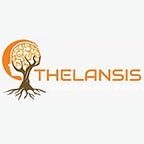Refractory Mesial Temporal Lobe Epilepsy (MTLE) — Market Outlook, Epidemiology, Competitive Landscape, and Market Forecast Report — 2022 To 2032
Refractory mesial temporal lobe epilepsy (MTLE), also known as drug-resistant or intractable MTLE, is a type of epilepsy that primarily affects the mesial temporal lobe of the brain and is characterized by seizures that do not respond well to standard antiepileptic medications. The mesial temporal lobe, which includes structures like the hippocampus and amygdala, plays a crucial role in memory and emotions. When these areas are affected by epilepsy, it can lead to a range of seizure types and cognitive impairments. The seizures observed in MTLE patients exhibit shared semiological traits with various other epileptic conditions, such as absence, insular, and occipital lobe seizures. In instances of absence seizures, patients often display a vacant gaze and subtle automatisms that can resemble MTLE seizures. Similarly, those experiencing insular seizures may present with epigastric auras and oro-alimentary automatisms akin to TLE. Furthermore, some individuals with occipital lobe epilepsy may have seizures that swiftly propagate anteriorly into the temporal lobes, yielding semiological features highly reminiscent of TLE. Notably, several medical conditions can also mimic temporal lobe seizures, including panic attacks, tardive dyskinesia, excessive daytime sleepiness, periodic limb movement disorder, transient psychotic episodes, and psychogenic non-epileptic seizures (PNES). As the primary therapeutic approach for MTLE, the initial course of action involves commencing appropriately selected antiepileptic drug (AED) treatment. Among AEDs employed for MTLE patients, those commonly used to address focal epilepsies include carbamazepine, oxcarbazepine, levetiracetam, lamotrigine, and topiramate. These agents may be administered individually or, more frequently, in combination to attain sufficient seizure control. Nonetheless, it is well-established that many MTLE patients exhibit an inadequate response to antiepileptic drugs, and some who initially respond may eventually become medically refractory within a few years. In cases of medically refractory or drug-resistant MTLE, non-pharmacological approaches become pivotal in patient management. These encompass both surgical and neurostimulation techniques. Surgical options for MTLE encompass open resection as well as less invasive procedures. Standard open resective surgery is widely regarded as the most effective and safe treatment for TLE, surpassing prolonged medical therapy in terms of long-term outcomes. Various surgical procedures have been employed, including standard anterior temporal lobectomy, anteromedial temporal lobectomy, selective amygdalohippocampectomy, and temporal pole resection.
Thelansis’s “Refractory Mesial Temporal Lobe Epilepsy (MTLE) Market Outlook, Epidemiology, Competitive Landscape, and Market Forecast Report — 2022 To 2032” covers disease overview, epidemiology, drug utilization, prescription share analysis, competitive landscape, clinical practice, regulatory landscape, patient share, market uptake, market forecast, and key market insights under the potential Refractory Mesial Temporal Lobe Epilepsy (MTLE) treatment modalities options for eight major markets (USA, Germany, France, Italy, Spain, UK, Japan, and China).
KOLs insights of Refractory Mesial Temporal Lobe Epilepsy (MTLE) across 8 MM market from the centre of Excellence/ Public/ Private hospitals participated in the study. Insights around current treatment landscape, epidemiology, clinical characteristics, future treatment paradigm, and Unmet needs.
Refractory Mesial Temporal Lobe Epilepsy (MTLE) Market Forecast Patient Based Forecast Model (MS. Excel Based Automated Dashboard), which Data Inputs with sourcing, Market Event, and Product Event, Country specific Forecast Model, Market uptake and patient share uptake, Attribute Analysis, Analog Analysis, Disease burden, and pricing scenario, Summary, and Insights.
Thelansis Competitive Intelligence (CI) practice has been established based on a deep understanding of the pharma/biotech business environment to provide an optimized support system to all levels of the decision-making process. It enables business leaders in forward-thinking and proactive decision-making. Thelansis supports scientific and commercial teams in seamless CI support by creating an AI/ ML-based technology-driven platform that manages the data flow from primary and secondary sources.
